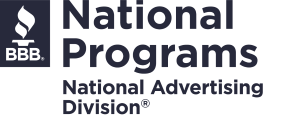
New York, NY – May 8, 2024 – In a challenge brought by The Procter & Gamble Company (P&G), BBB National Programs’ National Advertising Division recommended that Unilever United States, Inc., in connection with its Degree Advanced Antiperspirant:
- Discontinue express and implied claims that Degree Advanced completely prevents underarm sweat and sweat marks during intense exercise sessions.
- Modify its “Samuel” commercial to avoid conveying the message that all Degree Advanced antiperspirant products provide superior wetness prevention and reduction compared to all Old Spice antiperspirant products.
- Discontinue side-by-side demonstrations of visible sweat marks on Old Spice underarms and the dry underarms of Degree Advanced users.
The challenged advertising was part of Unilever’s “Gray T-Shirt Challenge” campaign, which featured individuals applying Degree Advanced 72-hour antiperspirant products in social media and TV ads while wearing a gray t-shirt, notorious for showing sweat. After “their sweatiest” workout, the videos and commercials depict the user’s completely dry underarms.
Gray T-Shirt Challenge Claims
In its decision, the National Advertising Division (NAD) determined that Unilever’s social media videos and commercials in context convey a message that Degree Advanced antiperspirant completely prevents underarm sweat and sweat marks throughout intense exercise.
In support of its claims, Unilever relied on the results of hot room and SweatSENSE studies. NAD found that while the evidence in the record demonstrates Degree Advanced antiperspirant’s extra effectiveness at reducing underarm sweat, the product demonstrations in the videos and commercials go beyond sweat reduction and show the absence of sweat marks on users’ underarms.
NAD concluded that Unilever’s evidence was not a good fit to support the challenged claims and recommended that Unilever discontinue the express claims:
- “moving for hours. Still dry,”
- “no sweat marks,”
- “while your workout will leave your gray t-shirt soaked, Degree will protect those pits at all costs,”
- “I am sweating but nothing on my armpits,”
- “Degree deodorant, 72-hour protection and you don’t even see [any] gray armpit stain,”
- “after a great workout, we have no sweat stains” and
- “even when sweat builds up on your chest or back, Degree Advanced keeps your underarms dry and odor at bay.”
NAD also recommended that Unilever modify its advertising to avoid conveying the unsupported message that the full line of Degree Advanced antiperspirants completely prevent underarm sweat and sweat marks during intense exercise. NAD noted that nothing in its decision prevents Unilever from making other claims that are accurate and narrowly tailored to the results of Degree Advanced’s hot room and SweatSENSE studies.
“Samuel” Commercial Clams
NAD found that Unilever’s “Samuel” commercial communicates a comparison between the Degree Advanced line of antiperspirants and the Old Spice line of antiperspirants.
NAD found that the depiction of Samuel completing several rounds of pull-ups and then showing his results of a dry underarm with Degree Advanced and a wet underarm with Old Spice conveyed the implied message that users of the full line of Old Spice antiperspirants will experience visible underarm sweat marks during intense exercise before Degree Advanced users will experience any visible underarm sweat marks.
Having determined that Unilever’s studies are not a good fit for claims regarding visible sweat marks on a t-shirt, NAD recommended that it be discontinued.
Further, NAD determined that the Samuel commercial conveys the implied message that the full line of Degree Advanced antiperspirants provides superior wetness prevention and reduction compared to the full line of Old Spice antiperspirants. Because the record did not contain testing on Degree Advanced sticks and Old Spice sticks, NAD recommended that Unilever modify its advertisement to avoid conveying such a message.
In its advertiser statement, Unilever stated that it will comply with NAD’s recommendations even though it “respectfully disagrees with NAD’s interpretation of the claims at issue.”
All BBB National Programs case decision summaries can be found in the case decision library. For the full text of NAD, NARB, and CARU decisions, subscribe to the online archive. This press release shall not be used for advertising or promotional purposes.
About BBB National Programs: BBB National Programs, a non-profit organization, is the home of U.S. independent industry self-regulation, currently operating more than a dozen globally recognized programs that have been helping enhance consumer trust in business for more than 50 years. These programs provide third-party accountability and dispute resolution services that address existing and emerging industry issues, create a fairer playing field for businesses, and a better experience for consumers. BBB National Programs continues to evolve its work and grow its impact by providing business guidance and fostering best practices in arenas such as advertising, child-and-teen-directed marketing, data privacy, dispute resolution, automobile warranty, technology, and emerging areas. To learn more, visit bbbprograms.org.
About the National Advertising Division: The National Advertising Division of BBB National Programs provides independent self-regulation and dispute resolution services, guiding the truthfulness of advertising across the U.S. The National Advertising Division reviews national advertising in all media and its decisions set consistent standards for advertising truth and accuracy, delivering meaningful protection to consumers and leveling the playing field for business.
Contact Information:
Name: Jennie Rosenberg
Email: jrosenberg@bbbnp.org
Job Title: Media Relations
Tags:
BNN, CE, Extended Distribution, Go Media, Go Media2, Google News, iCN Internal Distribution, IPS, Nexis Newswire, PR-Wirein, Reportedtimes, English

